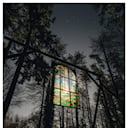How much did Union Carbide pay the Indian government for damages in the 1984 Bhopal disaster?
The Bhopal disaster was a gas leak incident on the night of 2–3 December 1984 at the Union Carbide India Limited (UCIL) pesticide plant in Bhopal, Madhya Pradesh, India. It is considered to be the world's worst industrial disaster. Over 500,000 people were exposed to methyl isocyanate (MIC) gas. The highly toxic substance made its way into and around the small towns located near the plant.
Estimates vary on the death toll. The official immediate death toll was 2,259. The government of Madhya Pradesh confirmed a total of 3,787 deaths related to the gas release. A government affidavit in 2006 stated that the leak caused 558,125 injuries, including 38,478 temporary partial injuries and approximately 3,900 severely and permanently disabling injuries. Others estimate that 8,000 died within two weeks, and another 8,000 or more have since died from gas-related diseases
In March 1986 UCC proposed a settlement figure, endorsed by plaintiffs' U.S. attorneys, of $350 million that would, according to the company, "generate a fund for Bhopal victims of between $500–600 million over 20 years". The Government of India refused the offer from Union Carbide and claimed US$3.3 billion. The Indian Supreme Court told both sides to come to an agreement and "start with a clean slate" in November 1988. Eventually, in an out-of-court settlement reached in February 1989, Union Carbide agreed to pay US$470 million for damages caused in the Bhopal disaster. The amount was immediately paid.
More Info:
en.wikipedia.org


